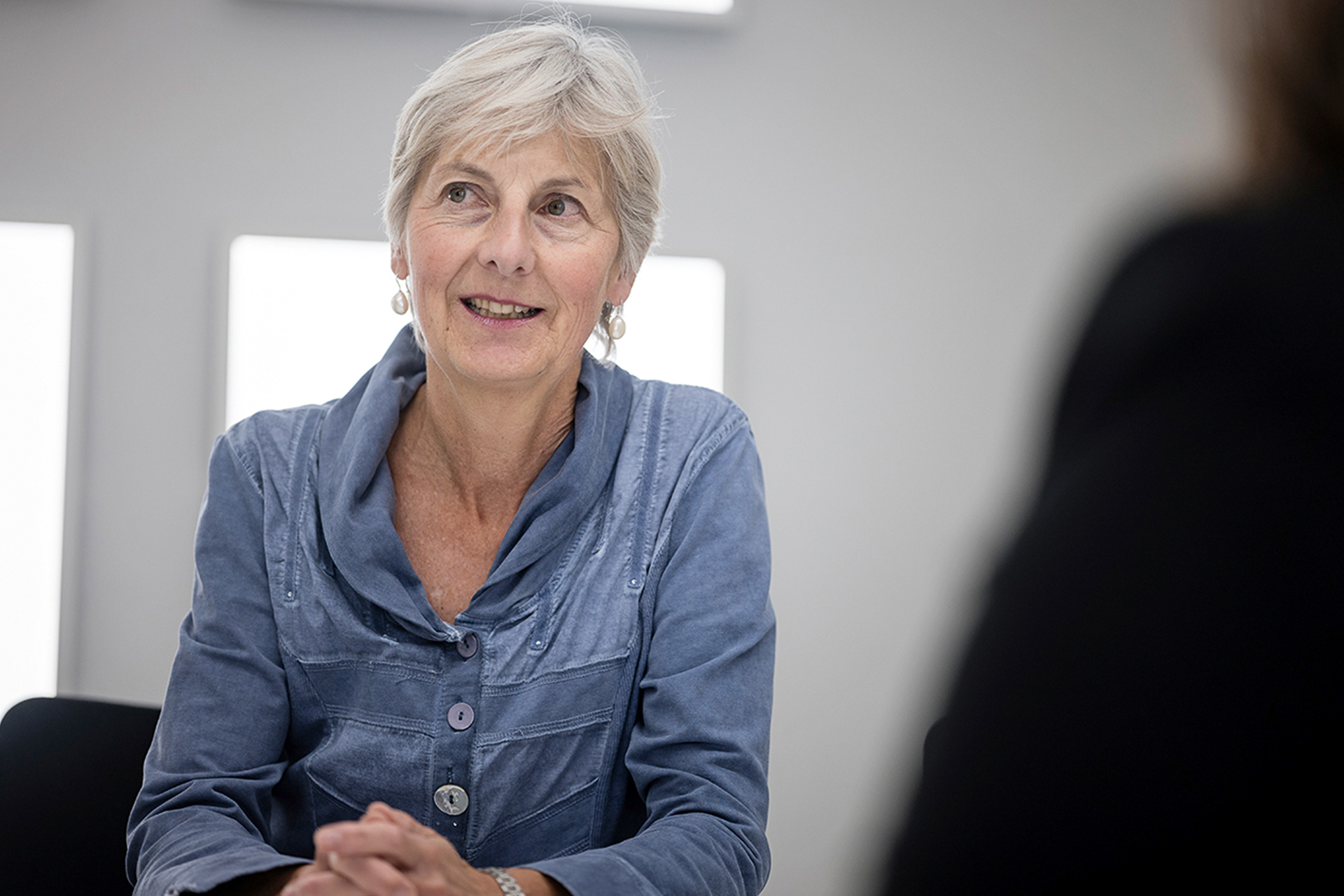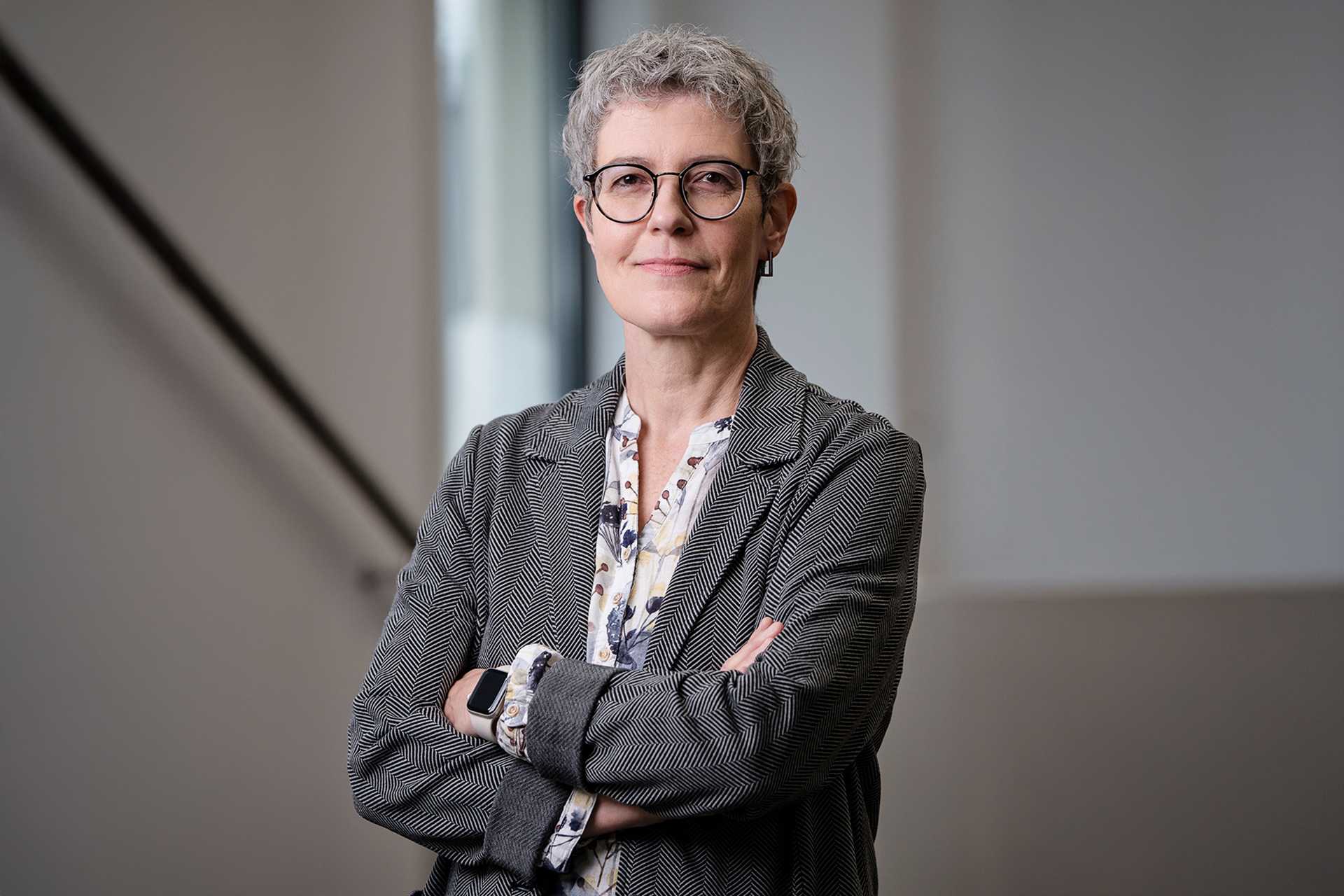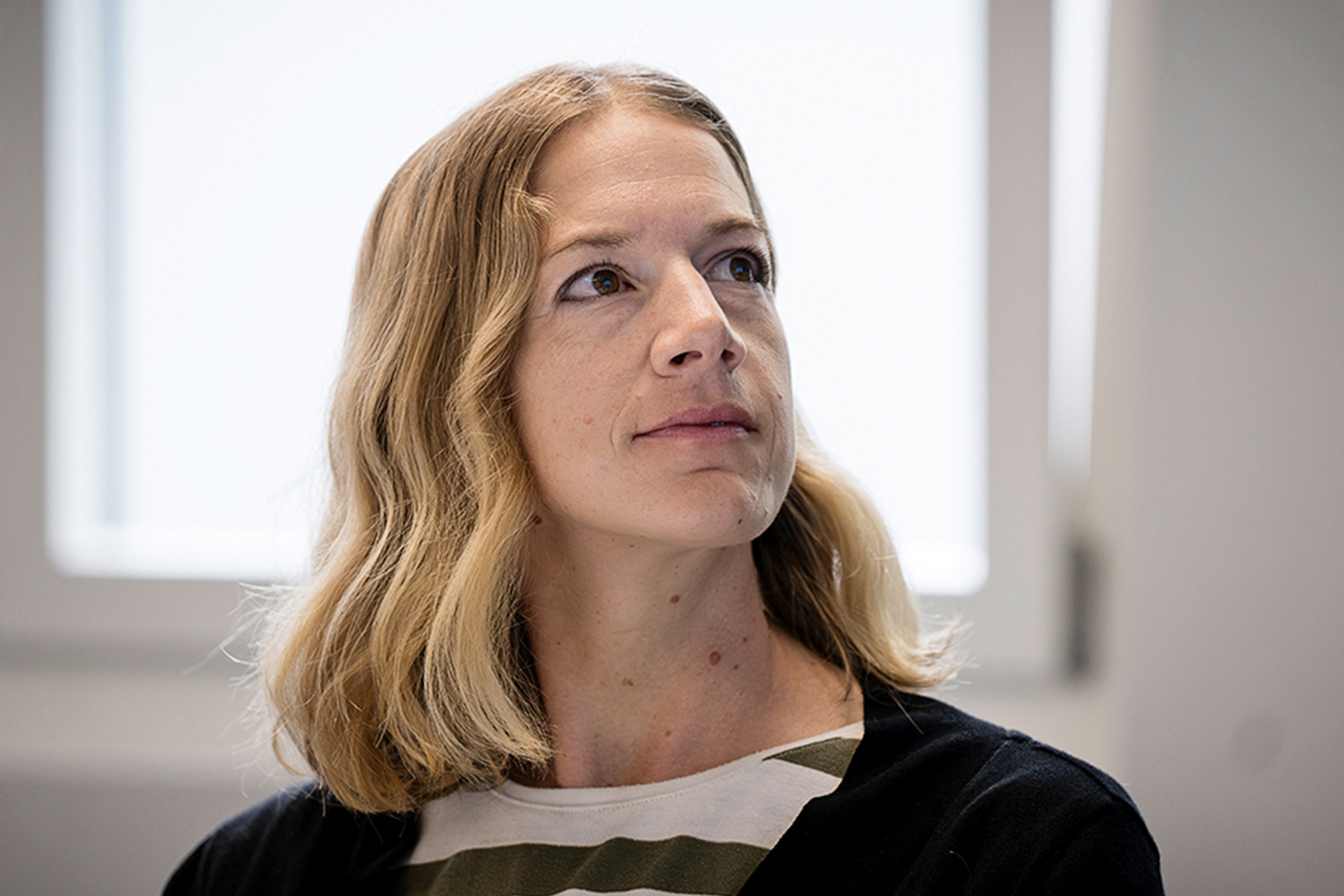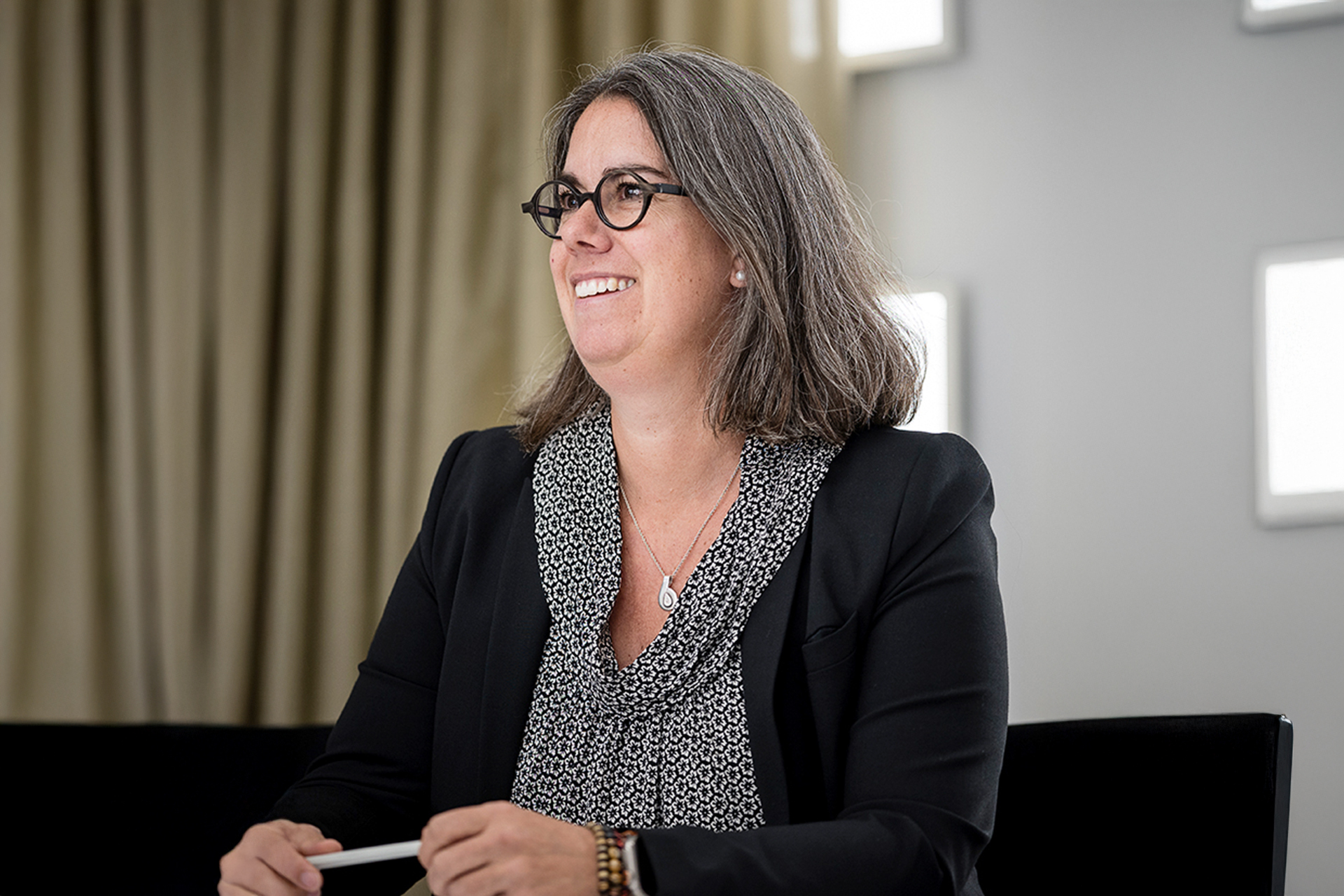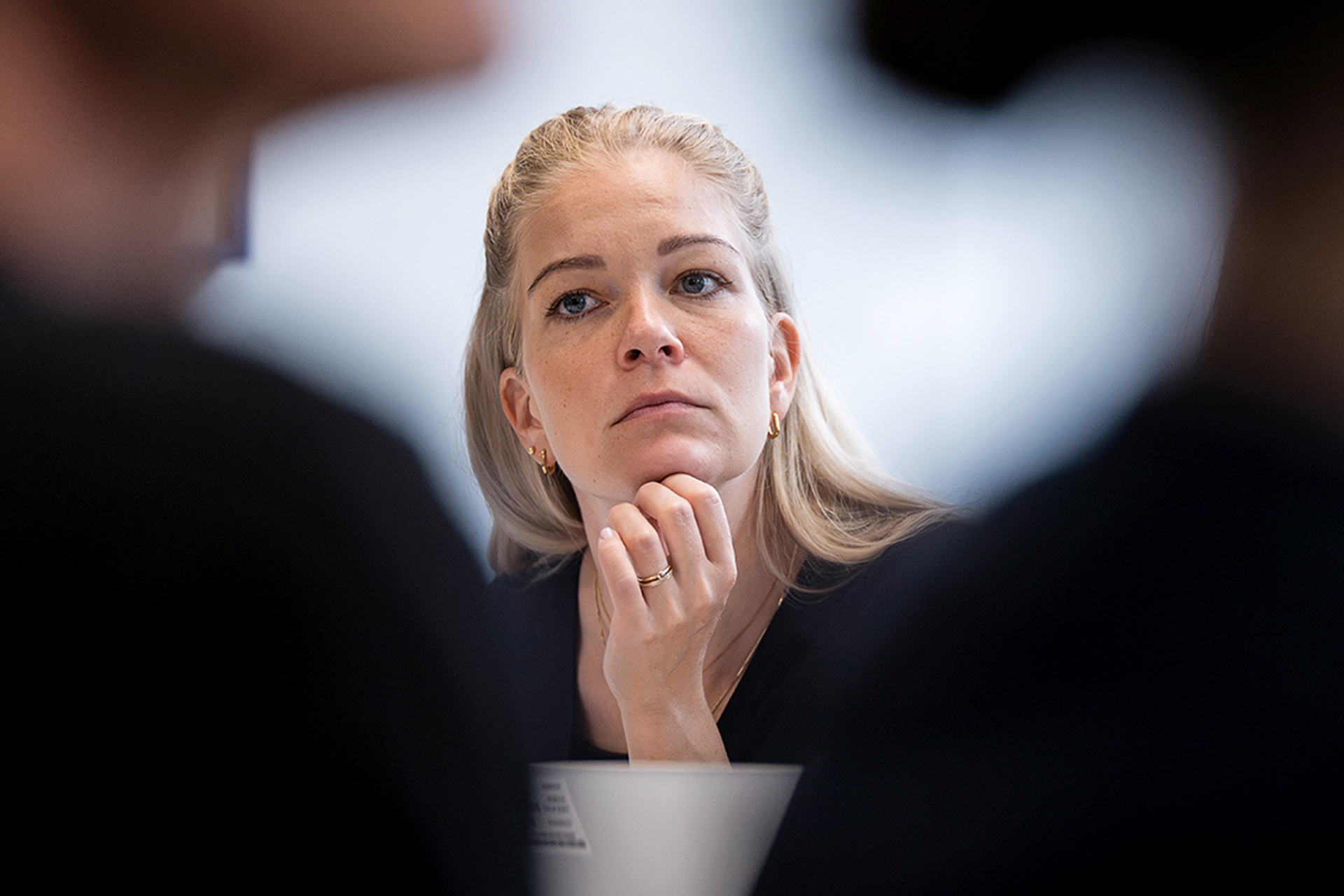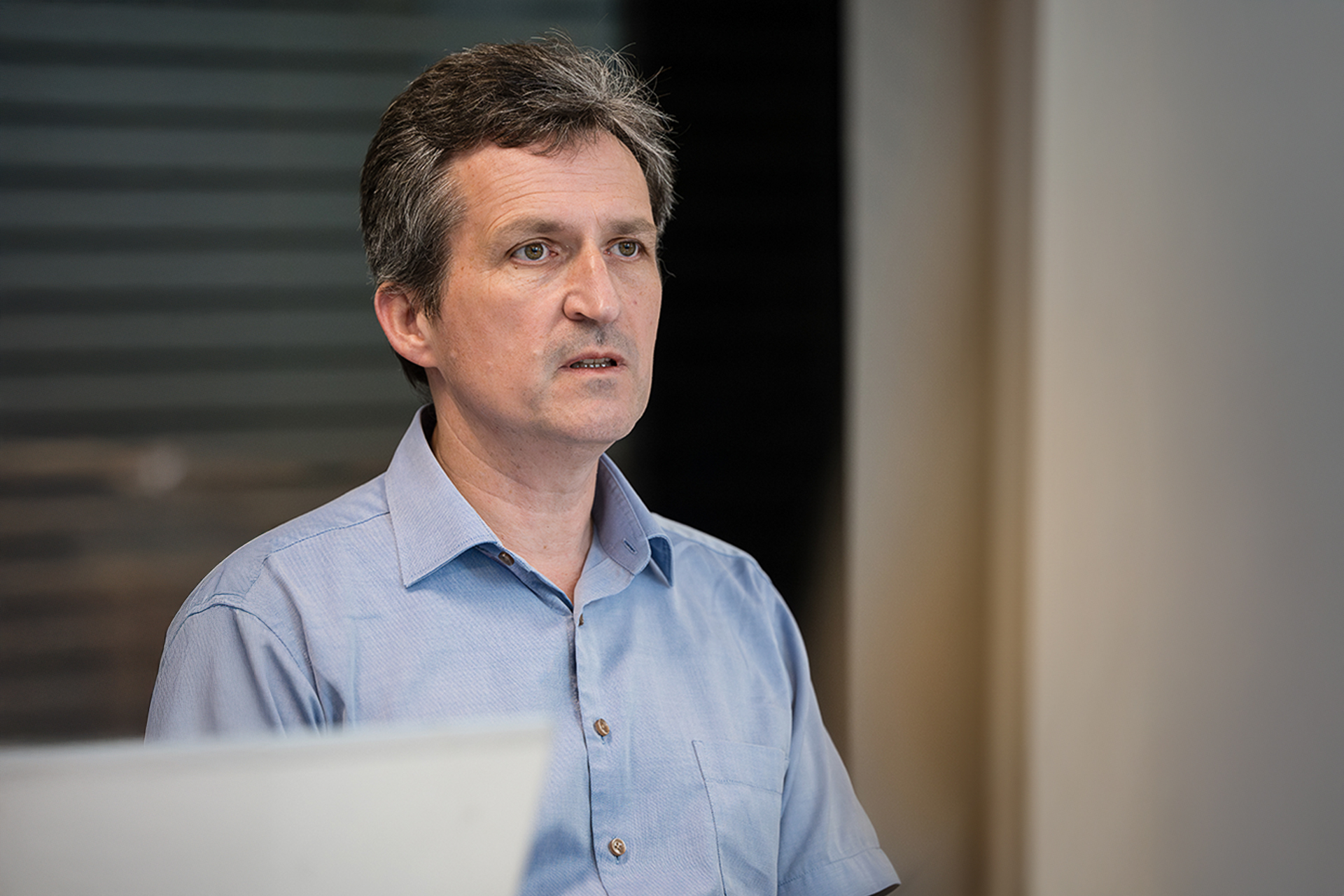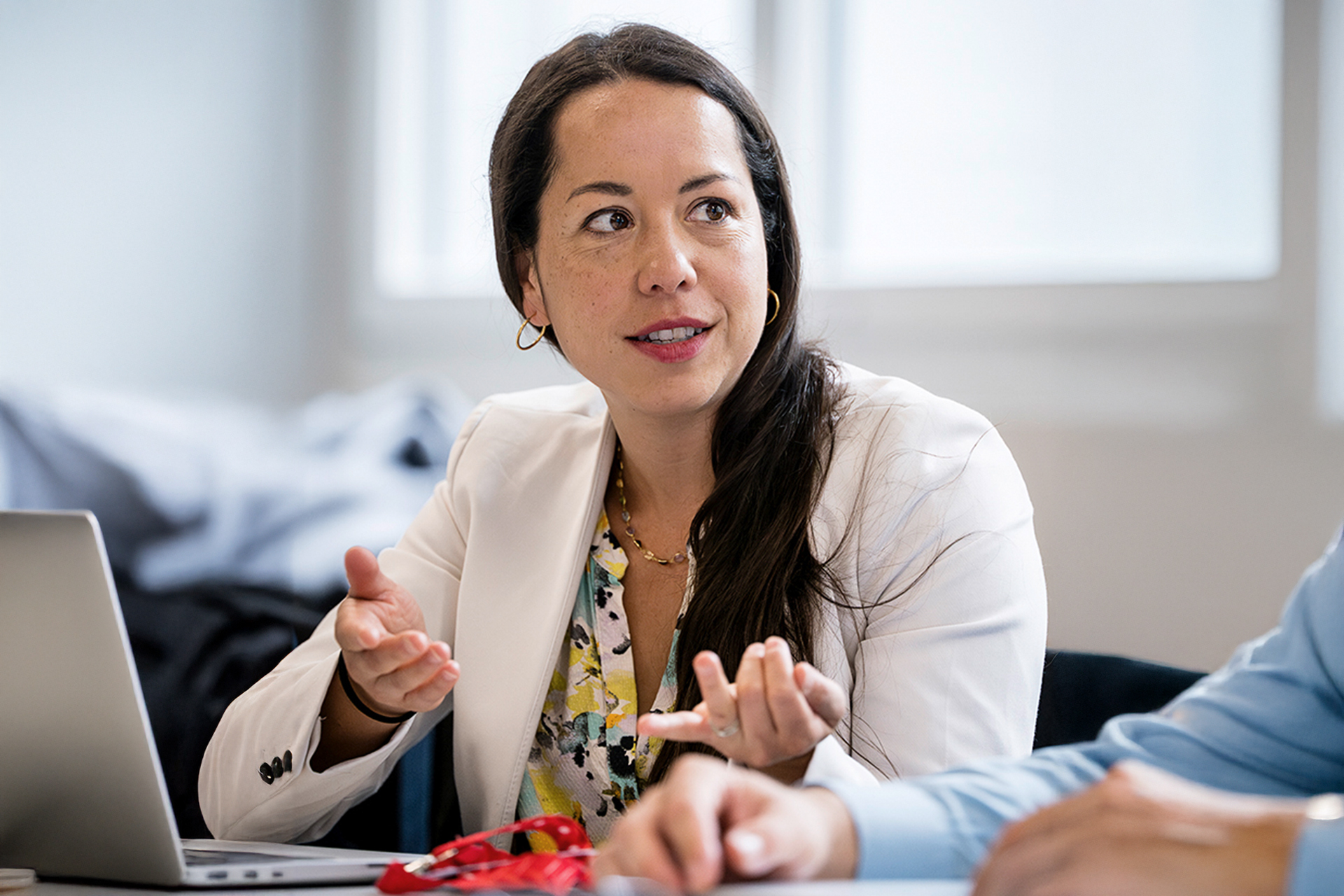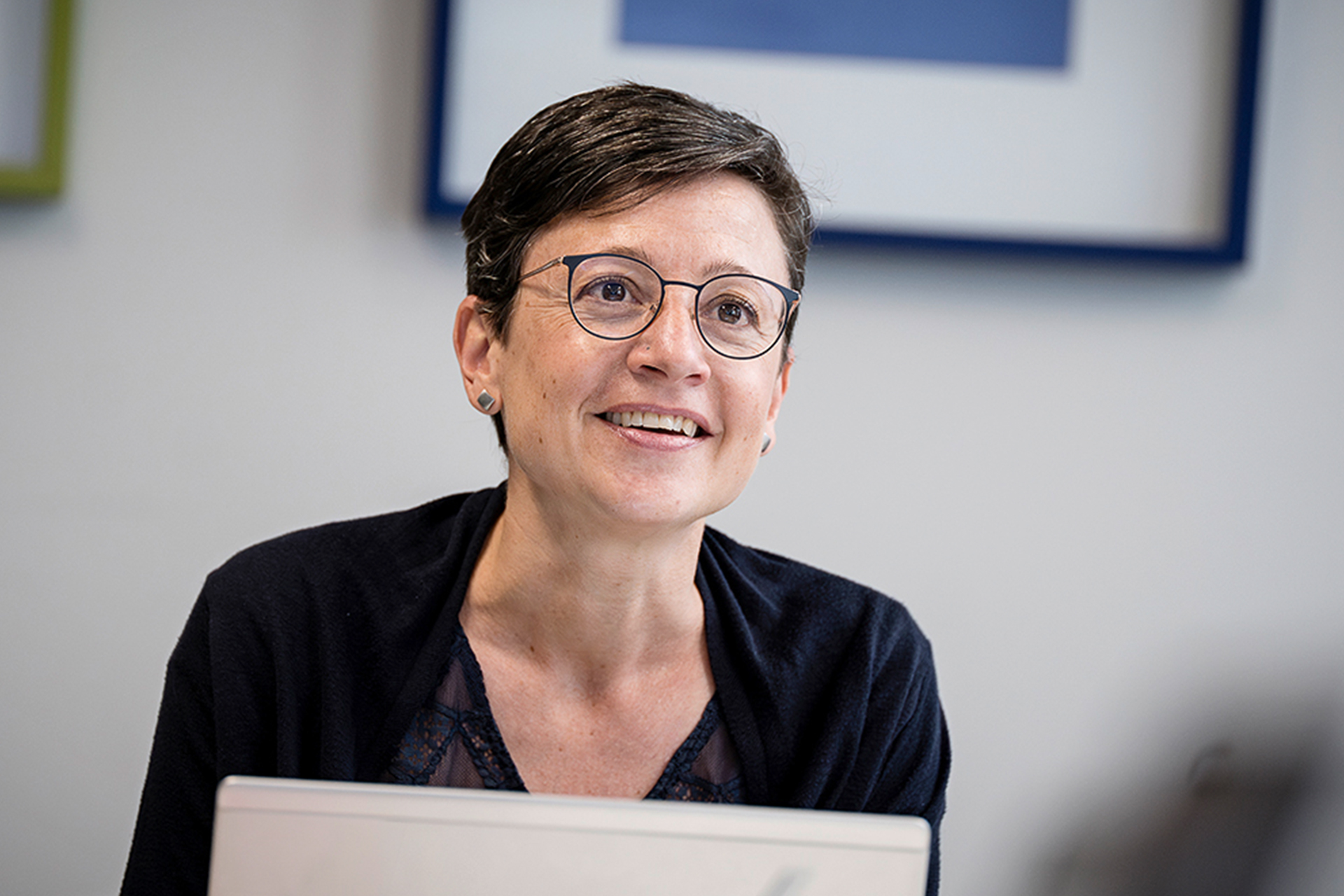Probed
Working to protect consumers Tracking down counterfeits
Medicinal product or cosmetic? Safe or not? A panel of experts from different authorities is looking into the question of which products count as therapeutic products and which do not. The panel is headed by Swissmedic's Corinne Robbiani. The work she does as part of it often resembles a criminologist’s search for clues.
“A safe alternative way of reducing excess fat”, claims the advertising for a weight loss injection that is apparently suitable “for stomachs, hips, thighs, upper arms and double chins”. “Inject the solution into excess fat”, it goes on, before exhorting us to “Order today!” A few months ago, social media was hyping up what sounds like a miracle cure for less attractive parts of the human body. Videos of treatment in beauty salons appeared on the Internet, as did tutorials showing potential customers how to administer the injections themselves. As a result, Swissmedic experienced an uptick in enquiries from private individuals asking what the lipolysis injection was all about. Is it a medicinal product? Or is it a cosmetic? And is it even safe? “Questions like this are a classic scenario for cross-agency cooperation”, says Corinne Robbiani.
The 58-year-old Swissmedic employee has been head of the Expert Panel for Delimitation Questions for two years now. The Panel is made up of other specialists and lawyers from Swissmedic, the Federal Food Safety and Veterinary Office (FSVO) and the Federal Office of Public Health (FOPH). Other members come from the Association of Cantonal Pharmacists (KAV) and the Association of Swiss Cantonal Chemists (VKCS). They all work to protect consumers, track down counterfeits and root out product misuse. And they do so together. “When it’s a question of protecting consumers, we all just have to work together”, says Corinne Robbiani with conviction.
The Panel meets regularly to look at products that are due to be placed on the market or are already being marketed. However, it has no enforcement powers, deciding only which legal category products fall into. The authority responsible for that category, and also for enforcement, then undertakes the investigation. That is why Swissmedic first determines the product category. Is the new CBD oil or a particular “dietary supplement” a therapeutic product? Or is it actually more of a foodstuff, chemical or cosmetic? And how should essential oils intended to increase wellbeing be classified? The challenge, according to Corinne Robbiani, is that “Each case is unique and we have to assess it from scratch.” That’s because products may fall under different legislation, depending on their intended use or dosage of certain constituents, and that can make things tricky. Take magnesium, for example, which is a widespread dietary supplement and is sold as such by Migros, Coop and other retailers. However, foodstuffs legislation prescribes precisely how much magnesium supplements can contain. If this threshold is passed, and the magnesium is being used to treat a deficiency, the product is a therapeutic product and subject to stricter laws. The Panel also has to take account of legal precedent when it scrutinises products.
“Each case is unique and we have to assess it from scratch.”
The Swissmedic experts occasionally almost morph into criminologists in their efforts to protect consumers. For example, they may analyse a dubious product in Swissmedic's own laboratory to determine its ingredients, order searches of a producer’s warehouse or occasionally even private homes, or go looking for clues. “Anything in blister packaging tends to resemble a medicinal product”, Corinne Robbiani explains. “But dietary supplements and medical devices often come in blister packaging too.” If pregnant women are not allowed to take a product or if its packaging or package leaflet contains references to side effects, this also tends to indicate that it is a therapeutic product.
Corinne Robbiani originally studied pharmacy in Fribourg and Bern, after which she became manager of a pharmacy in Bern. This was in the 1990s, and the open drug scene was widespread in the neighbourhood. After the pharmacy was robbed by people from the scene, she felt it was time for a change and moved to Swissmedic's predecessor. That was 29 years ago now. As part of her activities during that time, she did a lot of work on illegal medicinal products, before becoming head of Swissmedic's internal specialist group on delimitation questions. Then, two years ago, she also became head of the cross-agency Expert Panel for Delimitation Questions.
A lot has changed in the last thirty years. “We didn’t even have PCs at first”, Corinne Robbiani recalls. And above all, there was no cross-agency cooperation, with each authority working on its own at first. “The fact that everyone now sits around the same table and is constructive and motivated is a huge step forward”, the pharmacist thinks. “Because we can only create solutions if we work together!” For example, the Panel regularly publishes joint information sheets on delimitation issues online.
Not shown in the photos:
- Mirjam Anderegg, Federal Office of Public Health (FOPH)
- Ursula Deiss, Federal Food Safety and Veterinary Office (FSVO)
- Martin Fabritius, Swissmedic
- Nadine Grisel, Federal Office of Public Health (FOPH)
- Anna Rickli, Federal Office of Public Health (FOPH)
- Margot Spohn, Swissmedic
According to Corinne Robbiani, a further challenge facing the experts stems from the fact that “companies can easily find loopholes to keep their products on the market”. This means, for example, that if a CBD oil is not authorised as a medicinal product, inventive companies simply designate it a “mouthwash” and place it on the market in an underhand way. As a result, the product itself no longer falls unequivocally under strict therapeutic products legislation, but is at first glance a cosmetic. “These are the kind of loopholes that make enforcement harder because we first have to prove that there are concealed health claims or instructions for use”, Corinne Robbiani explains. And before the responsible authority can ban a product, for example, there has to be clarity about which legislation it comes under.
Incidentally, after taking a closer look, the Panel classified the weight loss injection as a medicinal product. The fact that it is injected under the skin and therefore requires a syringe disqualifies it as a cosmetic by virtue of the administration route alone. Thus the administration route means it is subject to therapeutic products legislation.
“Anything in blister packaging tends to look like a medicinal product – but could just as easily be a dietary supplement or medical device.”
Without authorisation, however, no medicinal product may be distributed, dispensed or used under any circumstances in Switzerland. The responsible authorities can confiscate such illegal medicinal products. If, for example, a medicinal product has not (yet) been authorised in Switzerland or is not available on the Swiss market and there is no substitute medicinal product, a medical professional can, if necessary and subject to strictly defined conditions, import small quantities for a particular individual. In such cases, though, it is sometimes necessary for Customs to first establish whether the products are really subject to therapeutic products legislation before Swissmedic can assess the consignment.
Private individuals are also entitled to source small quantities of medicinal products for their own use from other countries, even if the products in question are not authorised in Switzerland. “If we are unable to confiscate products despite potential risks because of the small quantity involved, we are no longer able to protect customers”, Corinne Robbiani says. “Because at the end of the day, it’s primarily in the consumer’s hands. As an expert panel, we can only give warnings, and anyone who buys these products does so at their own risk. And needs to be aware that they may be using untested, poor quality products that may harm their health.”
